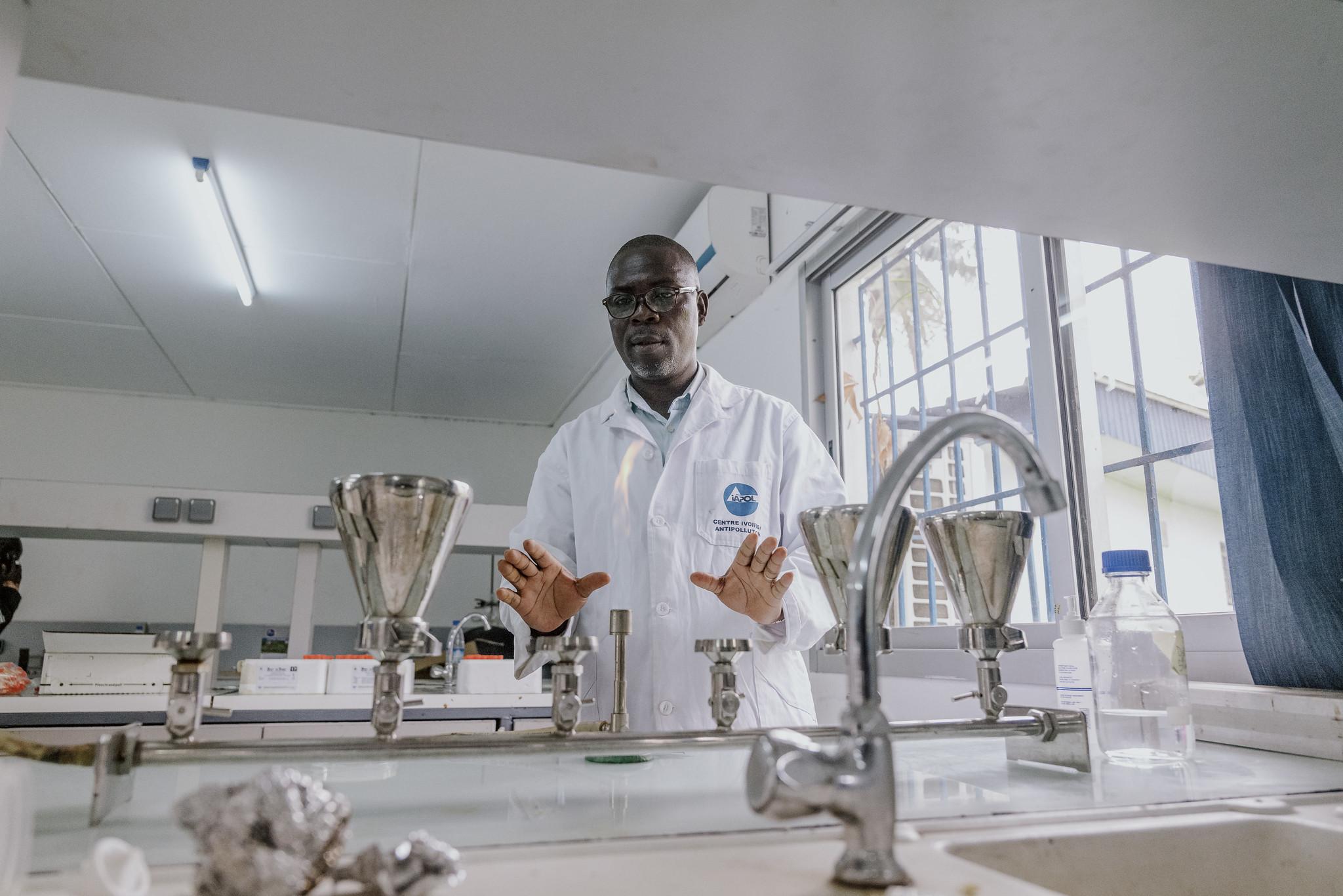- عربي
- English
- Français
- Русский
- Español
Science academies and universities drive Africa’s development agenda
© UNEP/Ollivier Girard
By Federica Irene Falomi, Economic Affairs Officer, United Nations Technology Bank for the Least Developed Countries
As custodians of knowledge, academies of science and research universities hold immense potential as promoters of sustainable development. Their financial sustainability is not simply about survival. It is about enabling these institutions to fulfill their mandates, contribute meaningfully to their national and regional economies, and influence policymaking in ways that genuinely serve their communities.
We live in a world of unprecedented complexity. Climate change, global health crises, food insecurity, and rapid technological disruption demand solutions that keep pace with these challenges. Crafting those solutions requires informed policymaking based on a deep understanding of local realities and rooted in robust data and evidence.
Science and technology are central to this effort. While they cannot solve every problem, no complex issue—be it economic growth, environmental sustainability, or public health—can be addressed without them.
Scientific knowledge underpins almost every decision tied to national development, and technology drives improvements across all fields. The new knowledge being produced influences how we think and live our lives. Yet in many African nations, and particularly in the 33 Least Developed Countries on the continent, research capacity remains severely constrained.
Data is often unavailable or borrowed from other regions—data that may not reflect African realities accurately. Research and development investments remain far below the global average, with most countries spending less than 1% of GDP. The correlation between research and development investment and the knowledge stock necessary to drive progress is well documented. Without it, policymaking risks being reactive rather than forward-looking, perpetuating cycles of underdevelopment.
While these challenges are significant, solutions to many of them already exist and have been tested and implemented successfully. African countries have a unique opportunity to leapfrog certain stages of development by borrowing and adapting these technologies to their contexts. Technologies are transforming how food is produced, distributed and consumed. Similarly, technology is at the heart of energy production, manufacturing development, digital transformation – all essential components of Africa’s growth and development.
Developing nations have latecomer advantages when it comes to technology adoption, which allow them to adopt emerging technologies and build policies, innovation ecosystems, and infrastructure with the future in mind. Take, for example, Rwanda’s investment in telecom infrastructure to deliver 4G to its citizens in few years, or its rapid uptake of drone technology to enhance healthcare delivery in remote areas.
The question is not whether to borrow these solutions but how to adapt them effectively to local needs. A one-size-fits-all approach cannot work. Leapfrogging requires identifying competitive advantages and implementing evidence-based, context-specific strategies. Policymakers need frameworks to enable leapfrogging and ensure it translates into sustainable growth.
Academies of science are uniquely positioned to guide this effort. With expertise spanning disciplines, they can evaluate solutions for compatibility, identify gaps, and advise on how to adapt or innovate. They can serve as a critical bridge between global knowledge and local application.
But to play this role effectively, academies need strong institutional foundations. In many least developed countries, these institutions are underfunded, under-recognized, and have limited operational capacity. Their absence from critical discussions results in policies that may miss the mark - with the potential of science to drive sustainable development remaining unrealized.
As a knowledge hub, the UN Technology Bank works with scientific institutions across the world to facilitate the exchange of science-based solutions and technologies, helping the least developed countries adapt them to their local needs. Through partnerships with networks like the Network of African Science Academies (NASAC), we aim to support academies of science and knowledge institutions as they contribute to Africa’s development agenda and lead on informing policies for effective technological adoption and development.
Yet, these efforts require academies to achieve financial sustainability to ensure lasting progress. Financial independence allows institutions to maintain neutrality, advise governments without bias, and pursue long-term strategic goals. It also provides stability for infrastructure growth, safeguarding operations from political and economic shifts. This is particularly crucial for LDCs, where political and economic instability can often lead to abrupt changes in funding streams. As these institutions grow in financial autonomy, they become better positioned to prioritize their own needs and aspirations, focusing on solutions tailored to local realities.
This does not mean abandoning government support. On the contrary, governments must remain foundational partners—particularly in the early stages of institutional development. Their investments provide the stability needed to grow capacity and credibility.
For least developed countries especially, the goal should be a balanced approach, with governments striving to increase their contributions to research and development and academies diversifying funding by engaging the private sector and forming international collaborations.
As Glenda Gray from South Africa’s Medical Research Council - once said, "Investing in research is about investing in the citizens of our country. Science changes lives."
The issue is not just about funding—it is about agency. It is about equipping Africa’s academies and universities to lead their countries through the complexities of sustainable development.
Together, we can ensure that science and technology can play that transformative role for Africa’s development.







